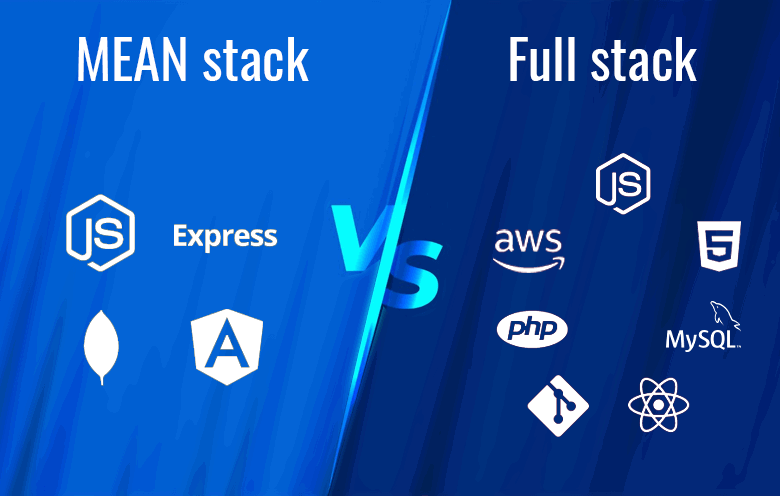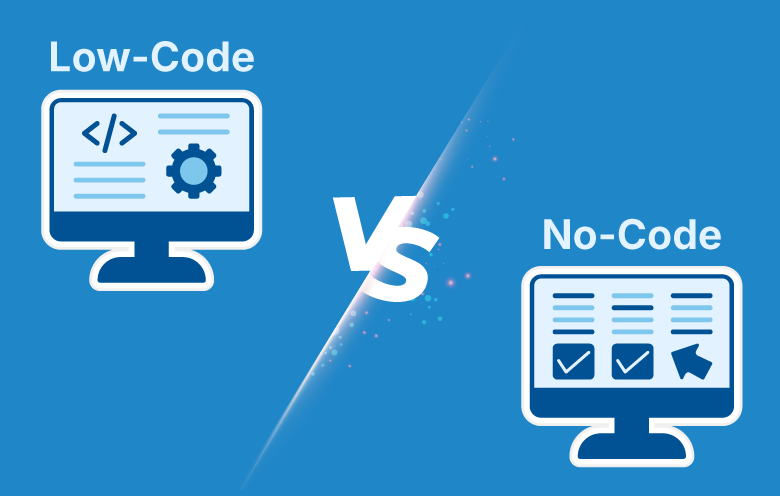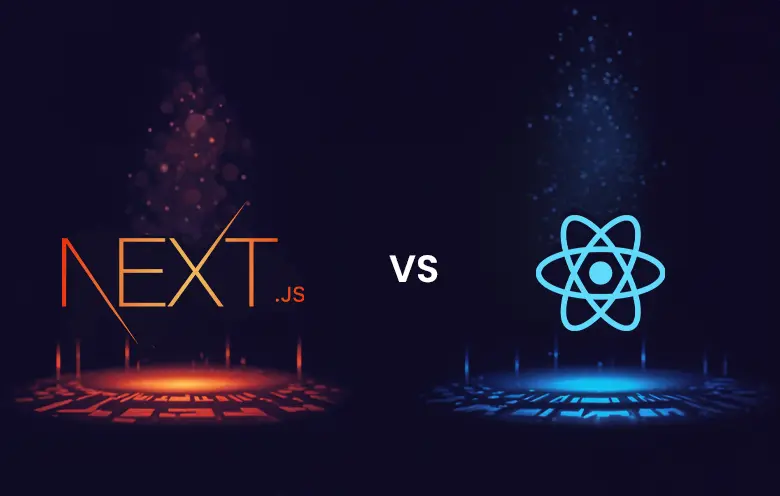Choosing the right technology stack to develop different types of web applications is imperative. Web development has two major components: frontend and backend. These components are quite important for mobile app and web development.
Full stack developers are proficient in managing both front-end and back-end aspects of a website. They navigate various programming languages and tools to ensure optimal web design, user interface and back-end functionality. However, the intriguing connection between full stack and MEAN stack begs exploration.
MEAN stack, a JavaScript-centric framework, serves as a key player in the toolkit of full stack developers for developing websites and web applications. This robust framework seamlessly integrates server-side and client-side execution handling, offering a cohesive environment where JavaScript prowess thrives. In essence, full stack development embraces the MEAN stack as a versatile and powerful ally in the pursuit of delivering a seamless and engaging online experience.
The demand to hire full stack developers and MEAN stack developers will continue to grow and we’ll find out why. Also, you’ll gain insights to help you determine the ideal choice for your needs.
Understanding MEAN stack
MEAN stack, comprised of MongoDB, Express.js, Angular, and Node.js, stands as a powerful and cohesive framework for building robust web applications. Let’s delve into the core components:
MongoDB: A document-based NoSQL database storing data in flexible JSON files.
Express.js: Express is a minimal and flexible Node.js web application framework.
Angular: A leading front-end web framework for dynamic user interfaces.
Node.js: A JavaScript runtime enabling server-side development.
This stack’s seamless integration and JavaScript-centric approach make MEAN stack a popular choice for developing progressive and responsive websites and applications. Hence, the importance of going with the right MEAN stack development company or hiring dedicated MEAN stack developers grows stronger.
Exploring full stack development
Full stack development, on the other hand, encompasses the entire spectrum of web development, involving both front-end and back-end technologies. A full stack developer possesses the versatility to handle various aspects of a project, from designing user interfaces to managing databases and server-side logic. They are adept at working with technologies such as HTML, CSS, JavaScript, and can navigate server-side frameworks and databases, offering a holistic solution to web development needs.
Key differences between MEAN stack and full stack developer
| Feature | MEAN stack developer | Full stack developer |
| Technology stack | MEAN stack development is a set of four technologies that can be utilized to make a full stack app. Mean stack is an important part of full stack development. | A full stack developer knows all the development frameworks, programming languages and technologies to develop websites or apps. |
| Preferred IDE | WebStorm IDE is the preferred choice among MEAN stack developers. | WebStorm IDE is the preferred choice among full stack developers. |
| Database | MongoDB is the sole database. | Works with many databases like SQL, MySQL, Oracle, etc. |
| Flexibility in frontend technology | Developers can use any frontend technology. | Developers are widely encouraged to use the Angular frontend framework. |
| Development suitability | MEAN stack development allows the development of open-source and robust solutions for small to medium-scale applications. | Full stack development is the perfect choice for small to enterprise-level businesses. |
| Required skills | JavaScript and related technologies are a must to perform a MEAN stack development. | Apart from frontend and backend knowledge, full stack development also includes Git and git commands. |
Pros and cons of hiring MEAN stack developers
Pros:
Specialized expertise: MEAN stack developers bring specialized expertise in a cohesive technology stack.
Consistent coding language:The uniformity of JavaScript throughout the stack ensures consistency and efficiency.
Efficient development: MEAN stack facilitates rapid development with fewer resources due to its integrated nature.
Cons:
Limited technology scope: MEAN stack developers may have a narrower skill set compared to full stack counterparts.
Dependency on JavaScript: The stack heavily relies on JavaScript, limiting the flexibility to use other programming languages.
Pros and cons of hiring full stack developers
Pros:
Versatility: Full stack developers can handle diverse technologies, offering flexibility in project development.
Holistic approach: They can oversee the entire development process, from design to implementation, ensuring a unified vision.
Adaptability: Full stack developers can seamlessly switch between front-end and back-end tasks based on project needs.
Cons:
Potential for shallower expertise: Full stack developers may not have the same depth of expertise in specific technologies as dedicated developers.
Resource intensity: The versatility comes at a cost, potentially requiring a larger investment in training and development.
Explore our full stack development success stories
At Softweb Solutions, our full-stack development endeavors are more than just projects; they are tales of innovation and problem-solving. Diving into the intricacies of web and mobile application creation, our full-stack developers have been the architects of solutions that transcend conventional boundaries. Let’s delve into the narratives of our impactful journey:
Project considerations
When deciding between MEAN stack and full stack development, project considerations play a pivotal role. Evaluate your project requirements, scope, and goals:
Scope and complexity: For more extensive, specialized projects, the MEAN stack might offer a focused and efficient solution. Full stack development is preferable for versatile projects with a broad scope.
Timeline and resource allocation: MEAN stack can be quicker for specific projects due to its integrated nature, whereas full stack development offers adaptability and scalability.
Long-term strategy: Consider the long-term goals of your project and the potential need for scalability. MEAN stack can be advantageous for rapid development, while full stack development provides flexibility for evolving project requirements.
The final say
In conclusion, the choice between MEAN stack and full stack development hinges on the specific needs and goals of your project. However, at the crossroads where MEAN stack and full stack development intersect, the latter stands as an epitome of versatility. As the architect of your digital destiny, the scales gently tip towards the comprehensive prowess of full stack development, offering not just a choice but a strategic advantage. Whether you opt for the specialized cohesion of MEAN stack or the versatile capabilities of full stack development, ensuring alignment with your project requirements will pave the way for successful web development endeavors.




